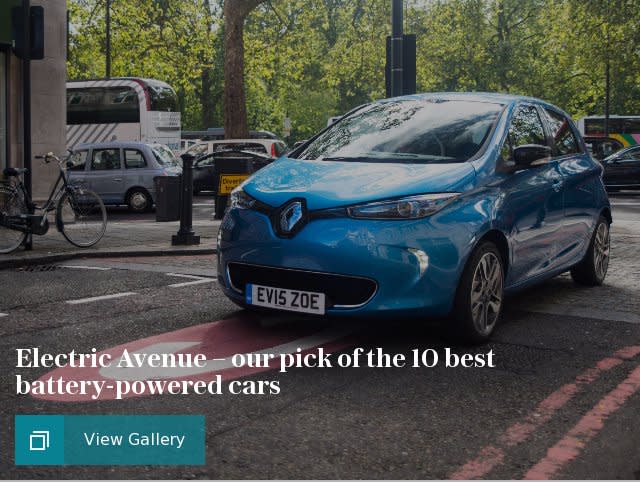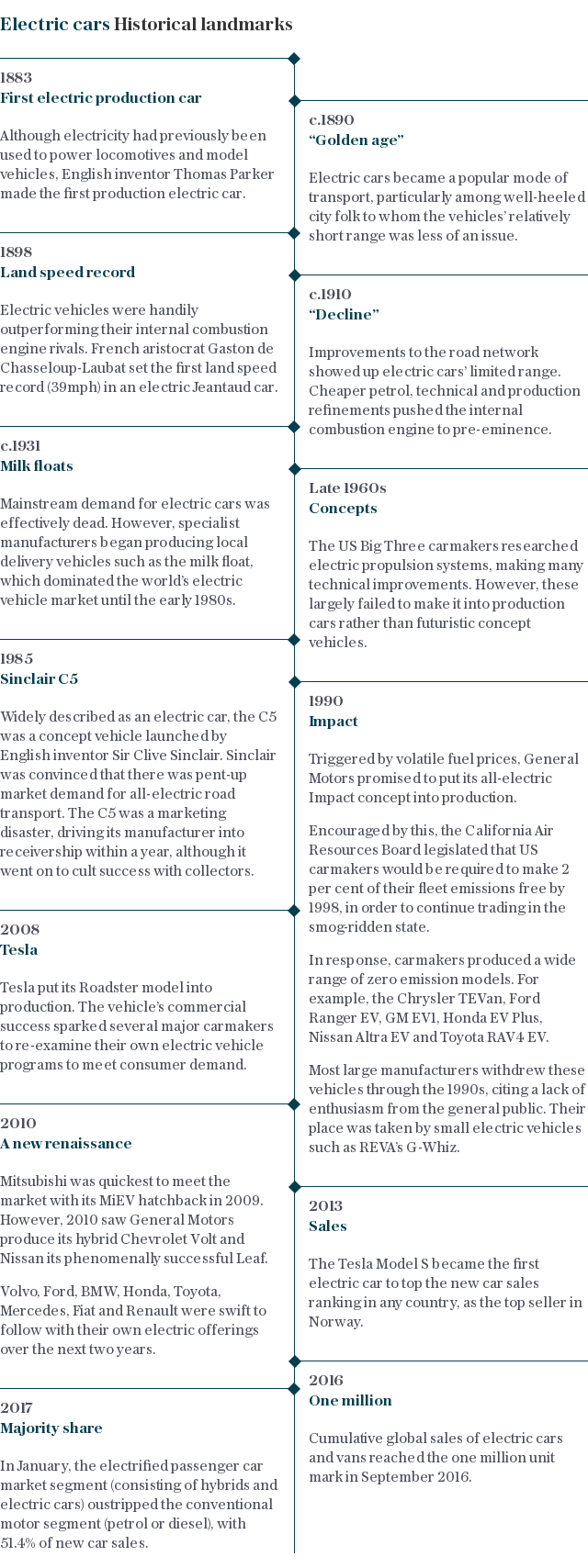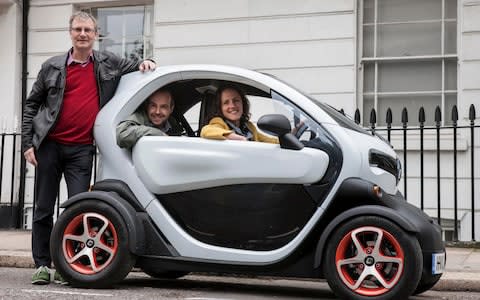Bicycles with batteries – Britain's electric revolution rides on two wheels, not four

Until recently I owned two bicycles. One, a Specialized hybrid, rarely sees the light of day because I'm too worried it'll get nicked. The other, an elderly Hercules with two-and-a-bit gears left in its crumbling Sturmey-Archer hub, has been stolen once already, and until relatively recently was my day-to-day runabout. I enjoy its charming simplicity, its flaws, and the fact that I'm probably the only person who can get it up to speed. I'm certainly the only person who can stop it.
A recent acquisition occupies the opposite end of the pushbike spectrum. Devoid as it is of idiosyncrasy and heritage, the bicycle currently wedged awkwardly into a cupboard in the office doesn't raise a smile, nor does it look particularly nice. It's a leviathan compared to my little three-speed and, from the wrong angle, could come across as a tad gauche.
But it's probably just about the most environmentally-friendly vehicle I've used in the past ten years.
I've driven a lot of electric cars during that time. I've also ridden a fair few bicycles. But neither has the potential to be quite so revolutionary as the electric bicycle. It's an old invention, originating (as far as I can tell) in the 1890s, and I'm slightly ashamed that this is the first one I've owned. Because from where I'm sitting, it's the answer to Britain's green transport woes.

The Gtech eScent has taken a couple of weeks to get used to. The first few days were spent acclimatising to the weird availability of disembodied torque, then I had to teach myself how to stop riding it like a motorcycle, changing down for corners. It's taken a several weeks longer to come to terms with the name, which surely challenges the VW e-Up! for sheer clumsiness.
For those of you who haven't encountered the concept of an electric bicycle, let me briefly explain. It's fundamentally a normal bike, with pedals for your feet and gears controlled from the handlebars. It's operated in the same way and requires no more skill to balance than an ordinary mountain bike. However, there's an electric motor hidden in the rear hub, providing a modest but noticeable amount of 'boost' to amplify your pedalling.
Crucially, this makes it more useful than an ordinary bicycle. I can go further on my electric bike than I could with an non-electric one, and I can take on more challenging routes. This means that I can use the electric bike more often than I could a normal pushbike, which in turn means I spend less time in the car and take fewer trips in buses.

My Hercules can only go as far as I'm prepared to pedal which, taking into account London's topography, rarely exceeds five miles. Hills make me sweat, which makes me smell – I'm not going to take my 'normal' bicycle any great distance unless there's a shower at the end of it. I'm no athlete, as anyone who has met me will attest, but an electric bicycle allows me to cycle ten or more miles without requiring a hosing-down on arrival. That makes it very car-like in how it fits into my life, and how I imagine it might fit into other people's.
You'll be broadly aware of the benefits and limitations of an internal combustion engine. Liquid fuel is a great way to store energy, but a petrol or diesel motor emits harmful pollution that damages the planet and nearby humans. You'll also be aware of the pros and cons facing electric car drivers – the EV has zero tailpipe emissions, but that power has got to come from somewhere, and it can take a whole afternoon to 'refuel'. Most of you should also be familiar with the pushbike, which requires no external power but can be a real hassle on long hills, and which has no load capacity.

Filtering between these beasts comes the electric bicycle. It borrows a patchwork of strengths and weaknesses from the car, the electric car and the bike, but constitutes what I believe is a more versatile compromise for urban Britons.
Let's start with pollution. It emits nothing 'at the tailpipe', which means it beats the internal combustion car and the motorcycle on local environmental grounds. While it needs to be charged, its relatively modest 5,600mAh battery drinks a tiny amount of fossil-fuel-derived electricity from the plug compared to (for example) a Nissan Leaf. And everything else is left down to the rider, which runs on modest quantities of sandwiches and filter coffee.

Then let's look at the charging. An electric car is probably the largest consumer product to come with a three-prong plug attached to it. The fact that it needs to be recharged rules it out for the vast majority of urban households in the UK, which generally aren't equipped with a driveway. Public charge points seem to be constantly broken, and are so oversubscribed anyway that electric car owners often struggle to depend on them. And let's remember the cost of getting a full driving licence. You have to be wealthy to have an electric car in London.
The electric bike, meanwhile, has a compact battery, the same approximate heft as a large bottle of water, which can be easily transported indoors. It sits charging on my desk during the day, and could be plugged in on the kitchen counter if I ever needed to charge the battery at home. It takes an hour or so to replenish the battery after a commute. My electric bicycle could be charged in any house and any office in the UK – more than can be said for the electric car.

What's more, the electric bicycle is still useful regardless of whether it's been charged. If I run out of battery in the middle of nowhere, or if I forget to switch the charger on, then I still have a bicycle. It's a rubbish one without the electric motor, sure, but it's no worse than a Boris Bike for short journeys. Electric car owners don't get this versatility – if a Model X runs out of juice, it becomes a 2,439kg ornament.
Electric car owners are also lugging a huge amount of metal and plastic around with them. They take up a much larger amount of the planet's resources to produce, then they occupy a bigger proportion of infrastructure when in use. The electric bicycle's footprint (tyre track?) is smaller throughout its life – which, I suspect, will be longer.

Most of the benefits are more immediately tangible. My journey time is massively reduced by virtue of the fact I'm not a car. I can use cycle paths, I can filter through gridlocked traffic, I can get off and push. I enjoy almost all of the benefits of riding a bicycle, but with fewer of the downsides and none of the sweat.
Perhaps that's one of the downsides itself: an electric bike won't keep you fit. Sure, you exert some energy, but it's quite possible to travel ten miles without properly exercising. Secondly, the price. You can buy a "second-hand" bike for £50 on Brick Lane, while a decent electric bike costs as much as a tatty hatchback.
You're also exposed to the elements. There's a certain sort of wetness that can only be achieved on a bicycle in rain, a sort of all-encompassing moisture that creeps through the clothes and sogs the soul. It's depressing, and the electric cyclist is equally susceptible. In that regard an electric car, even a Renault Twizy, is superior by virtue of its roof.

And perhaps most importantly, an electric bicycle is roughly as dangerous as an ordinary one. A helmet provides little protection against the 22 bus, or errant Uber drivers, or any of the perils facing cyclists in British cities. An electric bicycle won't make you any safer than if you're on a Boris Bike.
What it will do is open up sustainable, independent transport for millions of Brits. It's more financially accessible than an EV, greener than almost any other vehicle, and more practical than a push bike because it can be used on far more journeys. It's a better solution, for more people, than anything else we've got.
My electric bicycle will never replace my humble Hercules but it does, with surprising frequency, replace the car.

 Yahoo News
Yahoo News 
